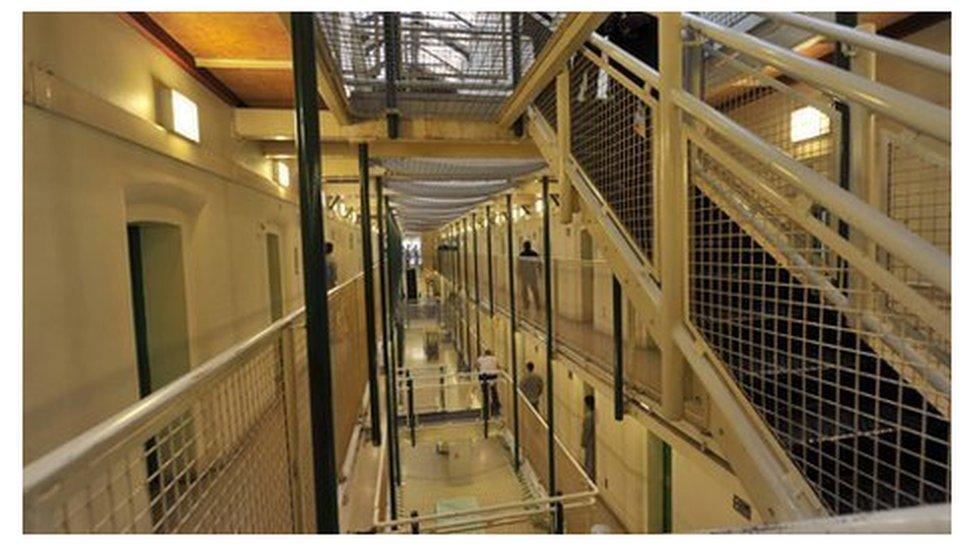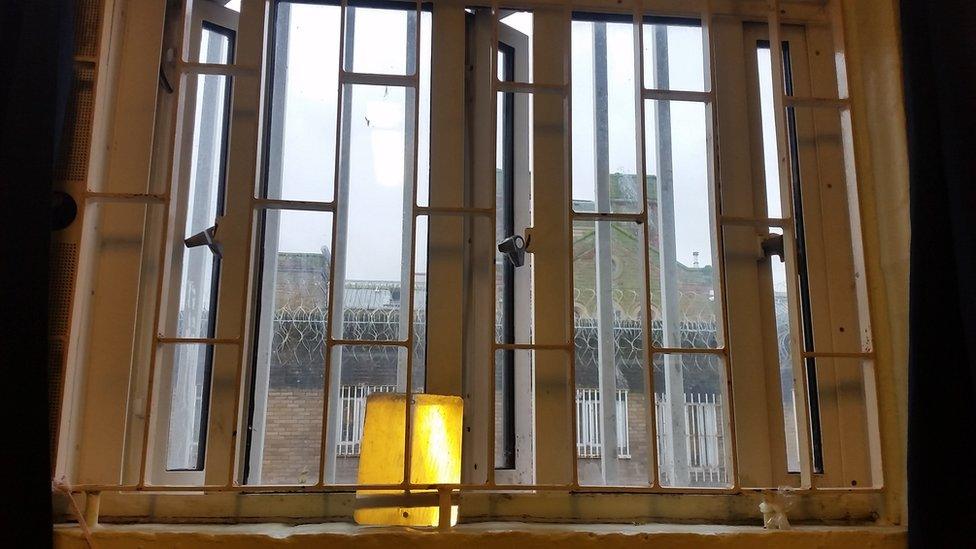'Basic arrangements' lacking for prisoners
- Published

Prisons should do more to prevent inmates from reoffending, the head of the service has said
A failure to put basic arrangements in place for people leaving prison is harming their life chances, a report has warned.
David Strang, the chief inspector of prisons for Scotland, said "far too often" people were leaving prison with no place to stay or access to a GP.
He also cited problems with healthcare for inmates in his annual report into the state of Scotland's prisons.
Mr Strang blamed communication issues between agencies for the failures.
According to the report, Scotland had a daily average prison population for 2015-16 of 7,675, a slight drop on the figures for 2014-15 and the lowest level since 2008.
'Unnecessary barriers'
Inspectors visited HMP Dumfries, HMP Addiewell, HMP & YOI Cornton Vale, HMP & YOI Grampian and HMP Open Estate over the course of the year to compile the report.
Mr Strang said: "Whilst there are lots of examples where excellent support is organised, far too often people leave prison without any accommodation arranged, without being registered with a GP and unable to receive their benefits without undue delay.
"The absence of such basic arrangements create unnecessary barriers to a constructive and positive life, where the likelihood of reoffending is reduced."
He said he hoped the imminent creation of a new government body, Community Justice Scotland, would lead to more joined-up services for those affected.
Mr Strang also described the delivery of health care to prisoners as both "challenging and demanding".
His report said: "Responsibility for ensuring that the healthcare needs of prisoners are met does not lie with the NHS alone; it is a joint responsibility shared with the wider prison management.
"In situations where there has been a breakdown in communication and a loss of this shared understanding and responsibility, the result is a waste of valuable resources and prisoners' healthcare needs not being fully met."

Concern about healthcare provision was also the most frequently raised issue by inmates to independent prison monitors (IPM) - volunteers who visited jails as part of a new programme launched in August last year.
The report stated: "IPMs have reported issues around access to healthcare, waiting times, problems with medication and dispensing and also mobility issues for older prisoners."
The report also focused on the increasing number of older inmates in Scotland's jails, whom Mr Strang said had a variety of health and social care needs.
He said the larger number of men convicted of historical sexual offences and the imposition of longer sentences at court meant it was a growing problem.
There were also delays in inmates being given access to programmes deemed necessary for them to progress to the point of parole, according to the report.
It stated: "In many cases, there is insufficient capacity to deliver the programmes necessary to meet the needs of the prison population and many prisoners have to wait for an excessive time before they are able to participate in a programme.
"This causes delays to their eligibility for parole and return to the community."